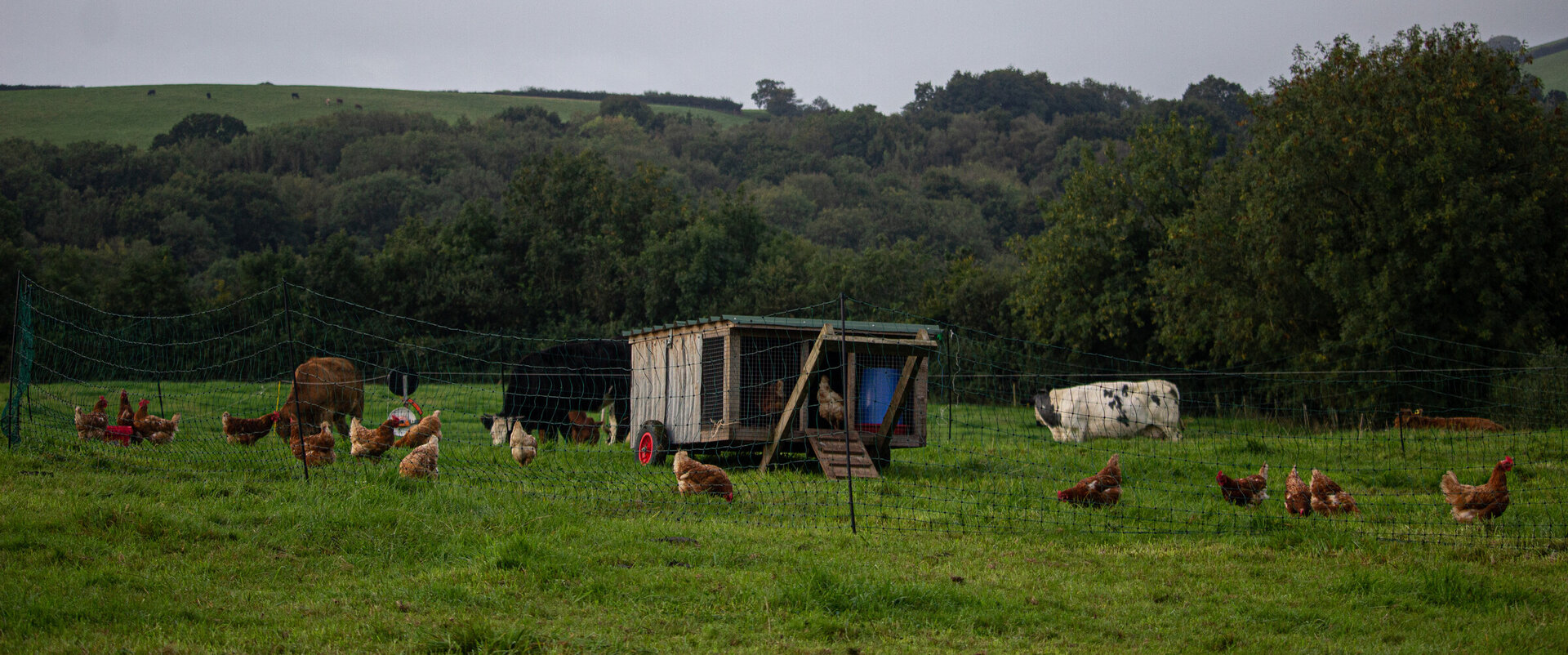REGENERATIVE AGRICULTURE
What is regenerative agriculture?
Regenerative agriculture treats the farm as an ecosystem.
The foundation of that ecosystem is the soil. The soil contains vast amounts of life; decomposing organic matter, making nutrients and minerals available for plants which are essential for the survival of plants, animals and ultimately us.
This fragile system is easily damaged if the natural processes are disturbed. Regenerative agriculture methods work with nature and natural processes to improve the resources rather than deplete or harm them.
You can read more detail in our technical blog about regenerative agriculture.
The regenerative process
To be able to look after our soil correctly, we must look at similar natural ecosystems, which have been working in harmony for millions of years.
In wild grasslands, animals group together in vast herds due to the threat of predators and are constantly on the move to find fresh grass, giving plants a long recovery time. This creates a significant but brief impact on the soil, through trampling of plants and the faeces left behind.
This layer of organic matter provides essential nutrients for plants to grow, as well as protection from the weather which can cause soil erosion. The long recovery time allows plants to grow larger which means they can put more carbon into the soil through photosynthesis.
Farming regeneratively
We replicate the regenerative process in nature by rotating our animals round the pastures, moving them regularly and leaving long recovery periods. This also mitigates disease build up allowing our animals to be healthier, as well as taking more carbon dioxide out of the atmosphere to store in the soil. It also creates more habitats for a diverse range of wildlife.
We work to farm in a way that has a positive impact on the environment, so our eggs and meat are of high quality and high nutritional value. Production is not rushed or forced, with slow grown, pasture fed livestock allowed to mature at a natural pace.
